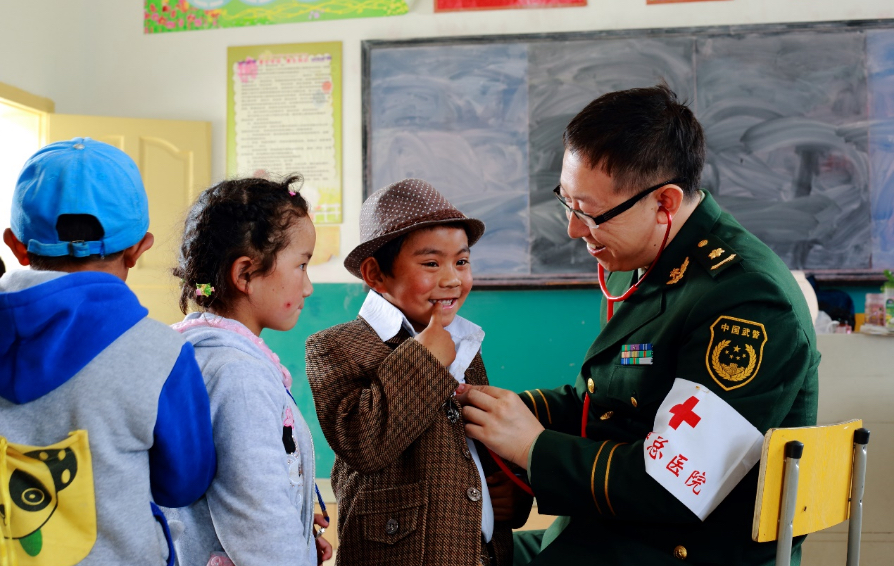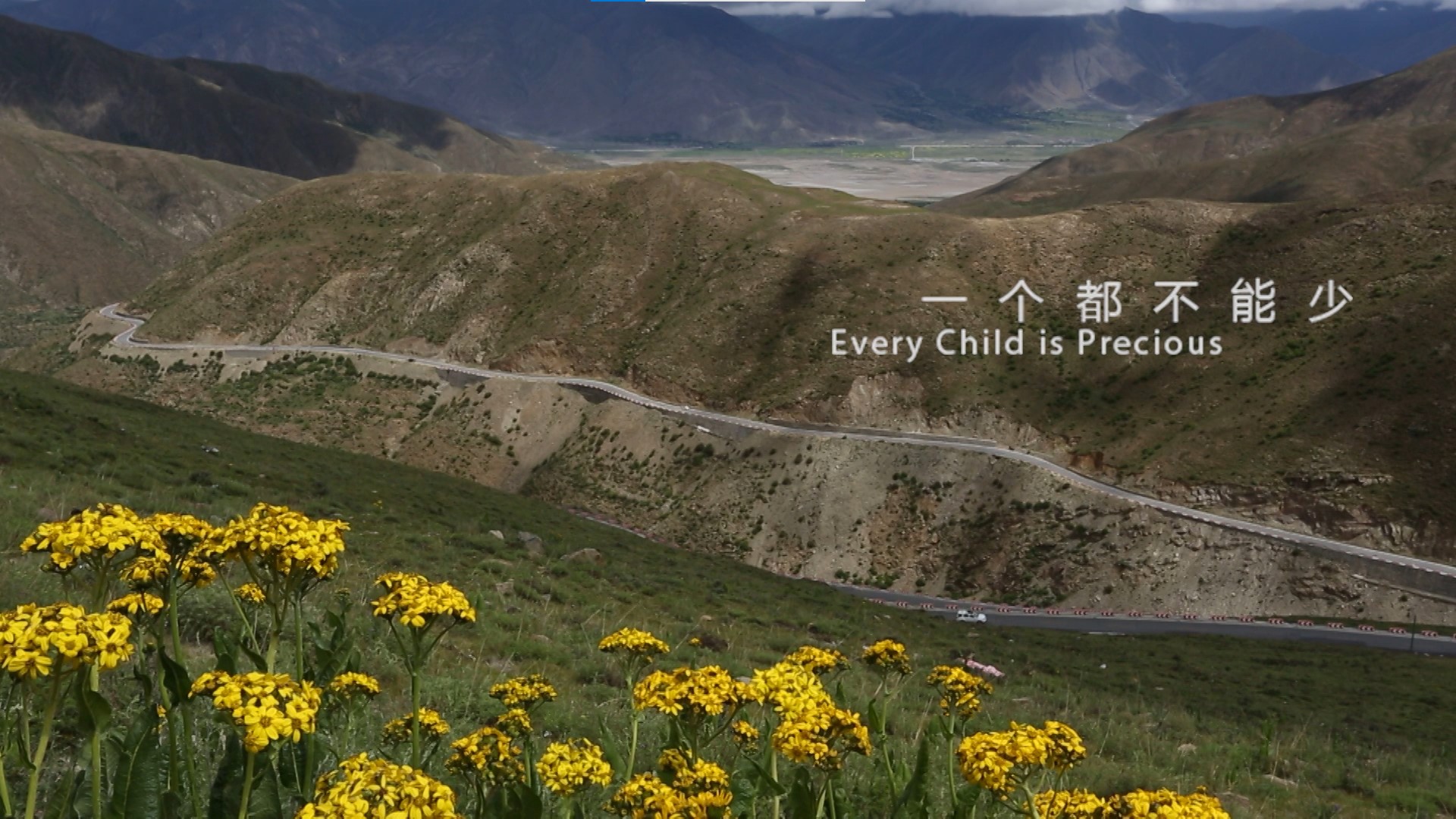In September 2013, Mindray released Every Child Is Precious, a documentary made in Tibet, a place that is known as the Roof of the World. It follows the moving story of Dr. Hou Haijun who, in July 2013, travelled to Tibet to provide children there with free congenital heart disease screening. Mindray provided the M7, a portable color ultrasound device, for the free screenings.
"The grassland with lamb flowers blooming
Is where I was born
Mom's sheepskin coat
kept my dreams warm
The tents distant in the clouds are in my heart forever
At the door, mom's been gazing at where I am for years
She's encouraging me to go ahead always"
At a primary school on the outskirts of Lhasa, Tibet, students were singing "Mom's Sheepskin Coat" to us in Tibetan. Their voices were bright and happy, echoing in the green landscape. And we found all our efforts had been well rewarded.
We had a rough script only, without communication with doctors in advance or any information about the schedule. We were even unsure about whether we would overcome altitude sickness. Everything was suddenly brought forward without warning, so the cameraman and I hurried to Nyingchi overnight dragging cameras and recording equipment with us, with no clue as to what would await us.
On the morning of July 12, our plane flew over the Yarlung Zangbo River and landed in Nyingchi, a place known as "scaled-down Sweden". As soon as we stepped out of the plane, we breathed in air which was unbelievably fresh but lacking in oxygen. We were surrounded by the azure sky, white clouds, mountains covered in verdant grass and carefree cattle and sheep. Everything was so beautiful and heart-touching that we couldn't bring ourselves to close our eyes for a nap even though we were exhausted.
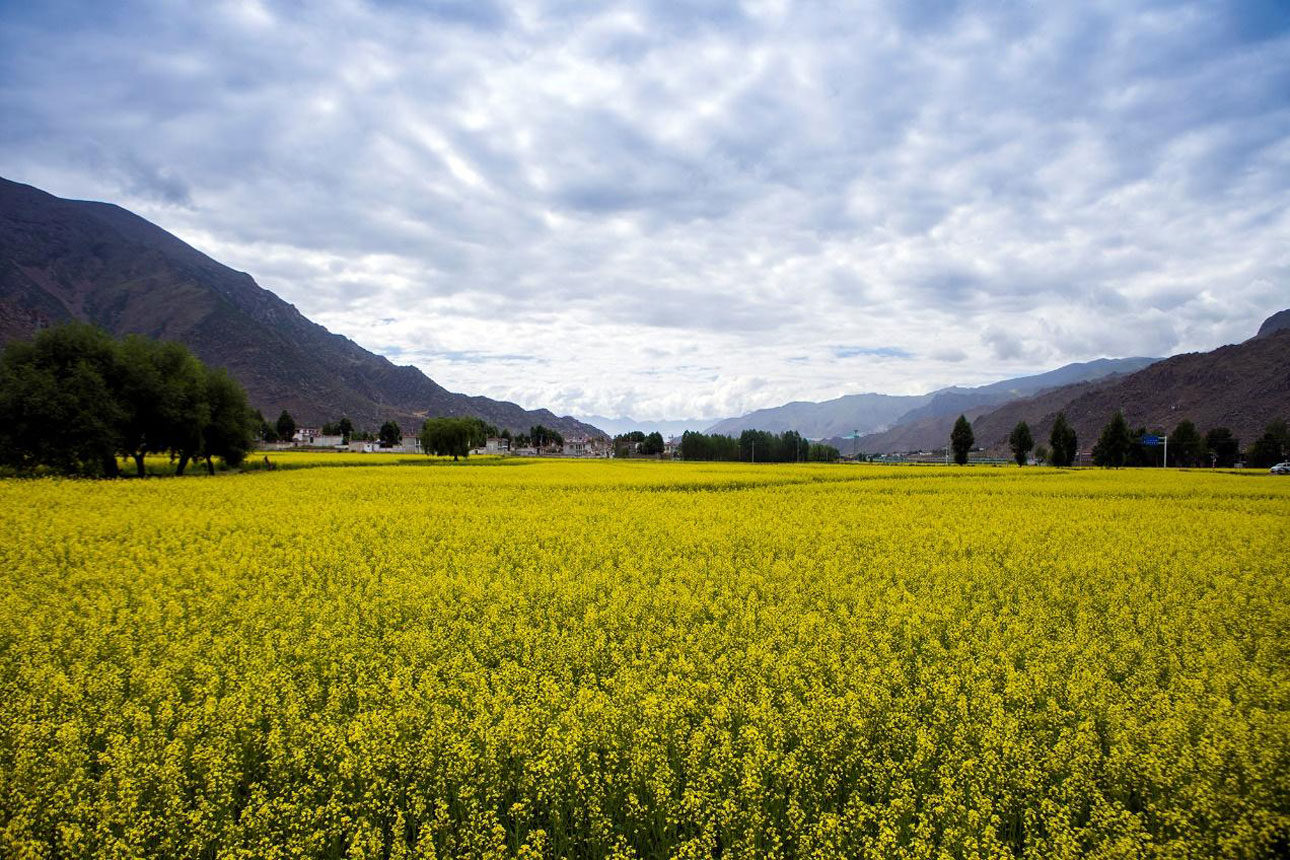
Arriving at the hotel, we met the core members of the screening program: Dr. Hou’s expert teams. They were five key doctors from the ultrasound, cardiology, and cardiac surgery departments.
Tibet is vast and sparsely populated, and schools and clinics are scattered across the terrain. We travelled for 7 to 8 hours each day.
Winding mountain roads had frequent hairpin bends and were right at the cliff edge. Some roads were built between two mountains, and there are often accidents caused by rockslides. I was so scared in the car that I could hardly breathe.
The bumpy ride and altitude sickness exhausted many of the journalists who came to report the event. However, no matter how tired they were, the doctors could not rest. Once they arrived at the screening site, they had a lot of hard work ahead of them.
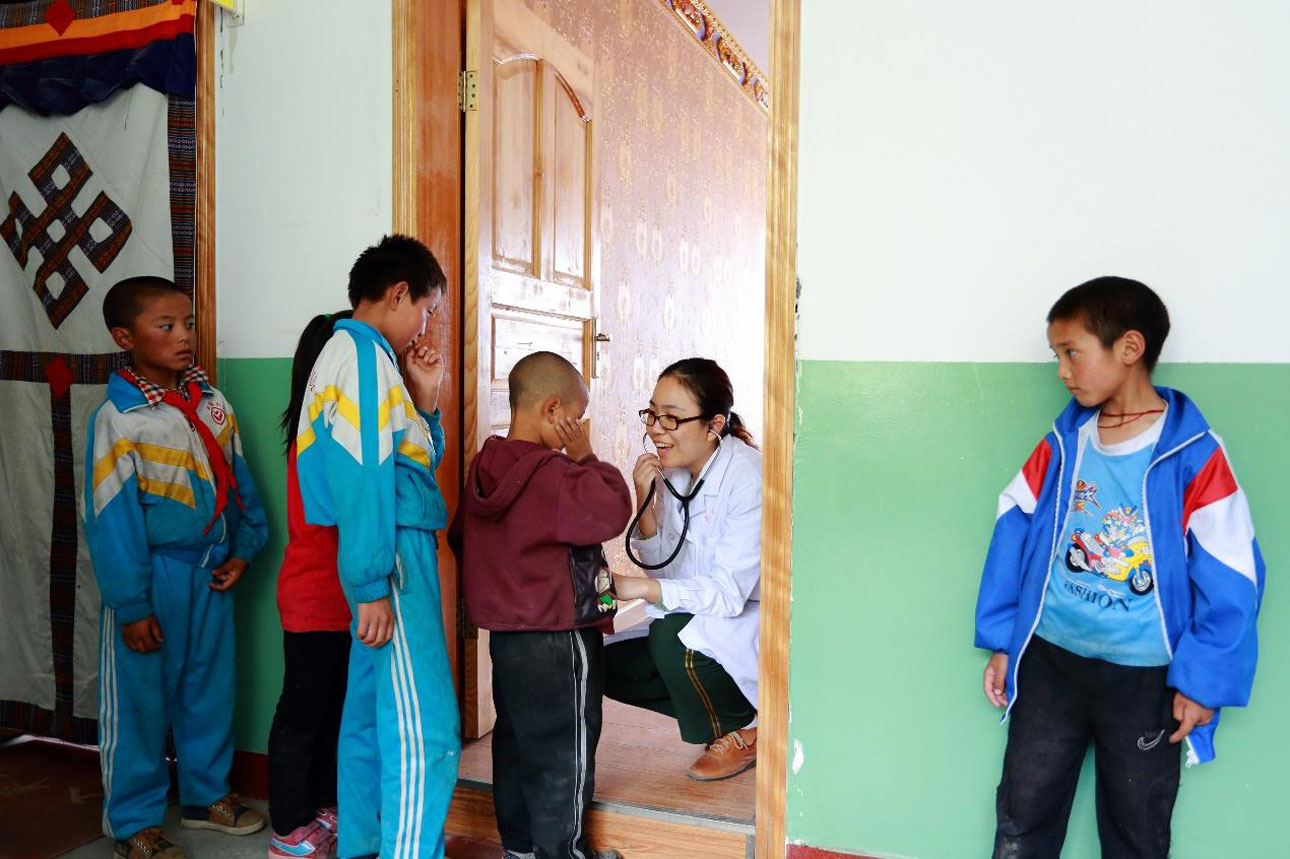
The workload of the doctors was incredibly heavy. In addition to all the travel, they were supposed to screen over 20,000 children. Sometimes a heart doctor had to perform stethoscope exams on over 3000 children a day, hearing nothing else but the beating of hearts. The ultrasound doctor also had to screen over 200 children each day, leaving his hands too numb to use chopsticks.
On the way, Dr. Hou told me how he felt. "Even as we are preparing to leave a clinic, there are still some villagers arriving with their children. They’re late because they have spent the whole day tramping many miles across the mountains. We don’t understand what the people say, but we see the trust in their eyes, the trust they have in doctors. This is one thing we’ll never forget. "
During the Spring Festival of 2011, the doctors went to Shigatse to carry out screenings. It was over -20 degrees, but there was no heating. And in the rural area there were no well-equipped hotels, so they slept on wooden beds, freezing cold. Dr. Hou and Dr. Yang just sat up all night staring at each other. When the new day dawned, they had to be back at work screening thousands of children. So, they needed to gather their strength again.
"My own child was born at that time too. Sometimes local people came with 1-month-old babies for the examination. The moment the babies smiled at me I felt like I was looking at my own child. They are so sweet, and we are responsible for safeguarding their health. "Dr. Yang said.
"Just a few minutes of examination can change the life of a child and their family. What delights me the most is to see children recover." Dr. Hou said.
To make a heart-rending documentary, the maker needs to be moved by the story. My trip with the doctors meant I witnessed first-hand and understood their hardships and the faith they have that they are doing something important.
The ultrasound examination is the key to the diagnosis of congenital heart disease. However, clinic sites in rural areas of Tibet are poorly-equipped and have very few ultrasound devices. "We usually just do simple auscultation and feel the pulse, and the diagnosis is far from accurate."Gama, the director of the central clinic site of Town Jinda in County Gongbujiangda of Nyingchi, told us.
Mindray's M7 is lightweight, portable, and stable in high-altitude environments. With real-time dynamic high-quality imaging and user-friendliness, it helps doctors make accurate and rapid diagnoses, winning the praise of doctors.
"Screening children for congenital heart disease in Tibet requires a high level of ultrasound devices. Due to the high altitude and large temperature variance in Tibet, the devices need to demonstrate stable performance. And because we have to go to a lot of remote rural areas where there is no electricity, the devices are expected to be light and portable with a long-lasting battery. "
"We have a lot of children to screen, and our devices should be easy to use with an efficient workflow, allowing us to diagnose quickly. Fine, clear, and high-quality imaging of the child's inner heart helps us make an accurate diagnosis. I think the M7 satisfies us," Haijun Hou said.
Watching the company's devices assisting doctors with their onerous task of screening so many Tibetan children, I felt proud to work for a company with such a degree of responsibility to society.
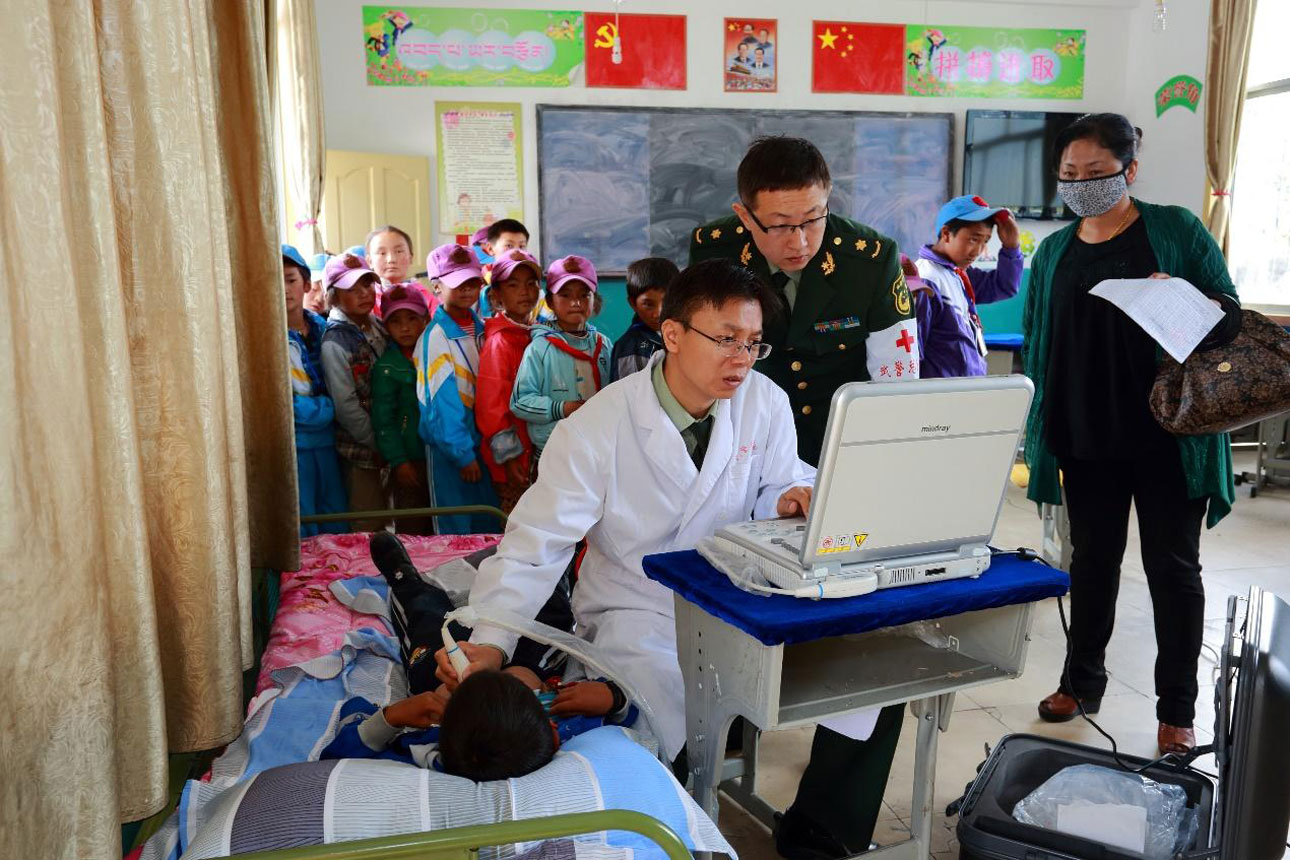
At the screening site in the school, the children affectionately called me "teacher". I took some stationery with me and gave them to the students. I also played with them in the playground. When children saw the camera for the first time, they were very curious. Each time I finished taking photos of them, they would crowd around me scrambling to be the first to see the photos.
The innocence in their eyes touched my heart. Many children growing up in cities are far less warm-hearted and pure-minded than they are. How we hoped that all of those children with their bright smiles were healthy. Unfortunately, not all of the children were so lucky.
In a suburb of Lhasa, a 12-year-old girl with congenital heart disease was diagnosed at an earlier screening and brought to the mainland for surgery. But we discovered that the heart problems were still very serious. All the doctors scrutinized the child's medical records, only to conclude that surgery would not successfully cure her. She might not reach adulthood.
In a few years, this girl would have heart failure and die before her life had really started. On the way back, it took me a long time to calm down. The doctors also felt incredibly sad and helpless when they came across cases like that.
We can reduce this sorrow by providing check-ups for more children at an earlier stage, as a check-up can save a child’s life. 108 children were diagnosed with heart defects and given free operations at the hospital in Beijing.
Back from Tibet, we started on post-production. We decided to begin with the first-person perspective of Dr. Hou, leading our audience up onto the snowy plateau, close to the children with congenital heart disease, and into the inner world of the doctors.
It was not easy to write a script that was both based on facts and artistic. I needed to really enter Dr. Hou's inner world, changing my gender, age, and profession to really think about how a 40-year-old middle-aged doctor would express his feelings. After listening to the recording of our interview and speaking with Dr. Hou many times, we finally finished the script of Every Child Is Precious. It is just 600 words, but every word has been weighed. Our team read it over and over again, word by word, to express Dr. Hou's inner voice in an authentic, accurate, and clear way. I can still recite it word for word.
The post-editing process was not easy either. We needed to watch every single shot to find the best footage for the film. When each version was completed, we would watch it a dozen times, discuss adjustments, and go on modifying it.
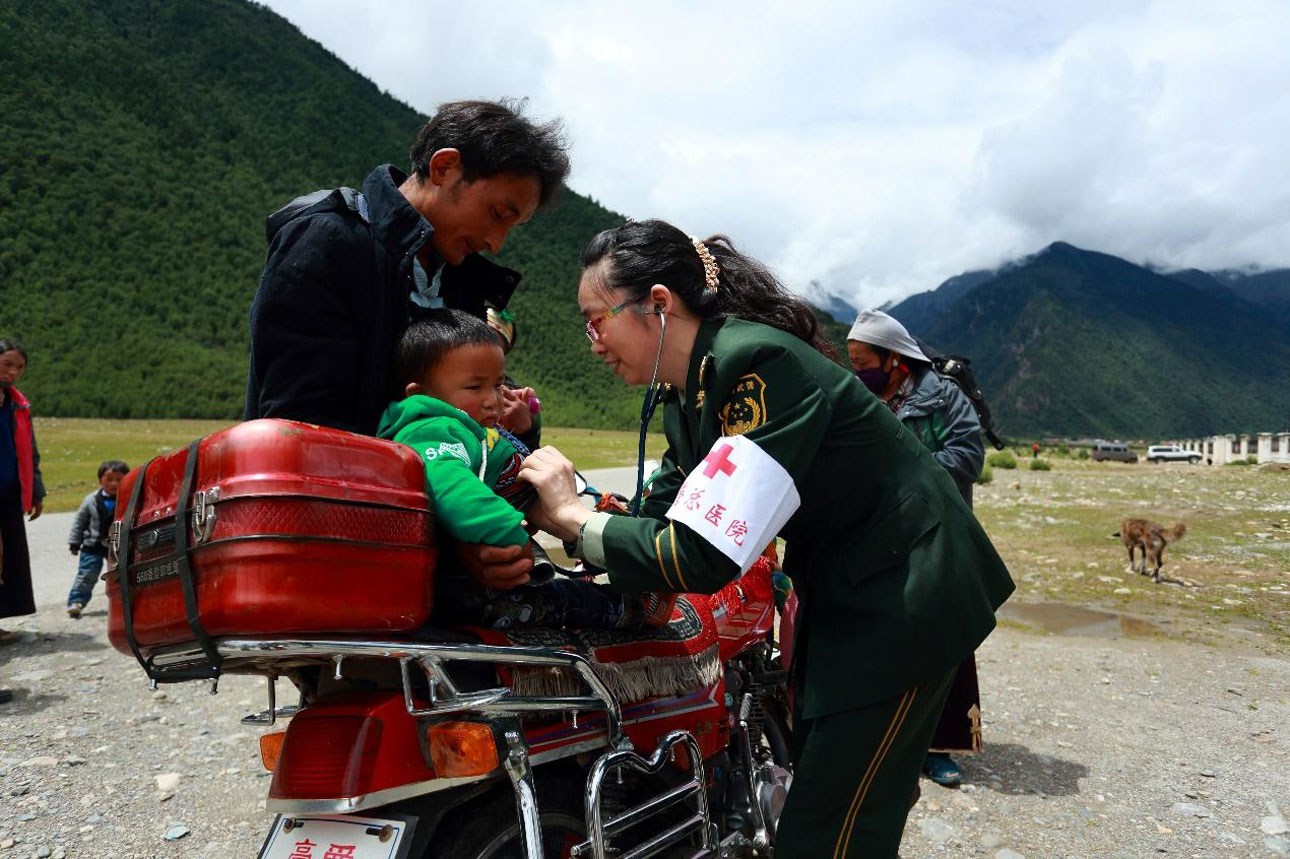
With cinematic images and narration, the film records how the doctors provided free screening, overcoming difficulties such as altitude sickness, poor conditions, and onerous tasks. Meanwhile, it also conveys the idea that Mindray firmly supports doctors in their careers with science and technology. It also depicts Mindray as a company that cares for the public regardless of geographical and economic barriers and strives to transmit bio-technology to every part of the world.
The doctors attending the free clinic also watched the documentary as soon as it was released. “After watching it, I think that we have really done a great job. I was moved myself," said Dr. Yan Xue from the cardiac surgery department in a message to me. "
Over the past four years, Mindray hand-carried ultrasound devices have helped doctors like Hou Haijun provide congenital heart disease examinations for more than 40,000 children. Hundreds of children have been restored to health by prompt treatment.
